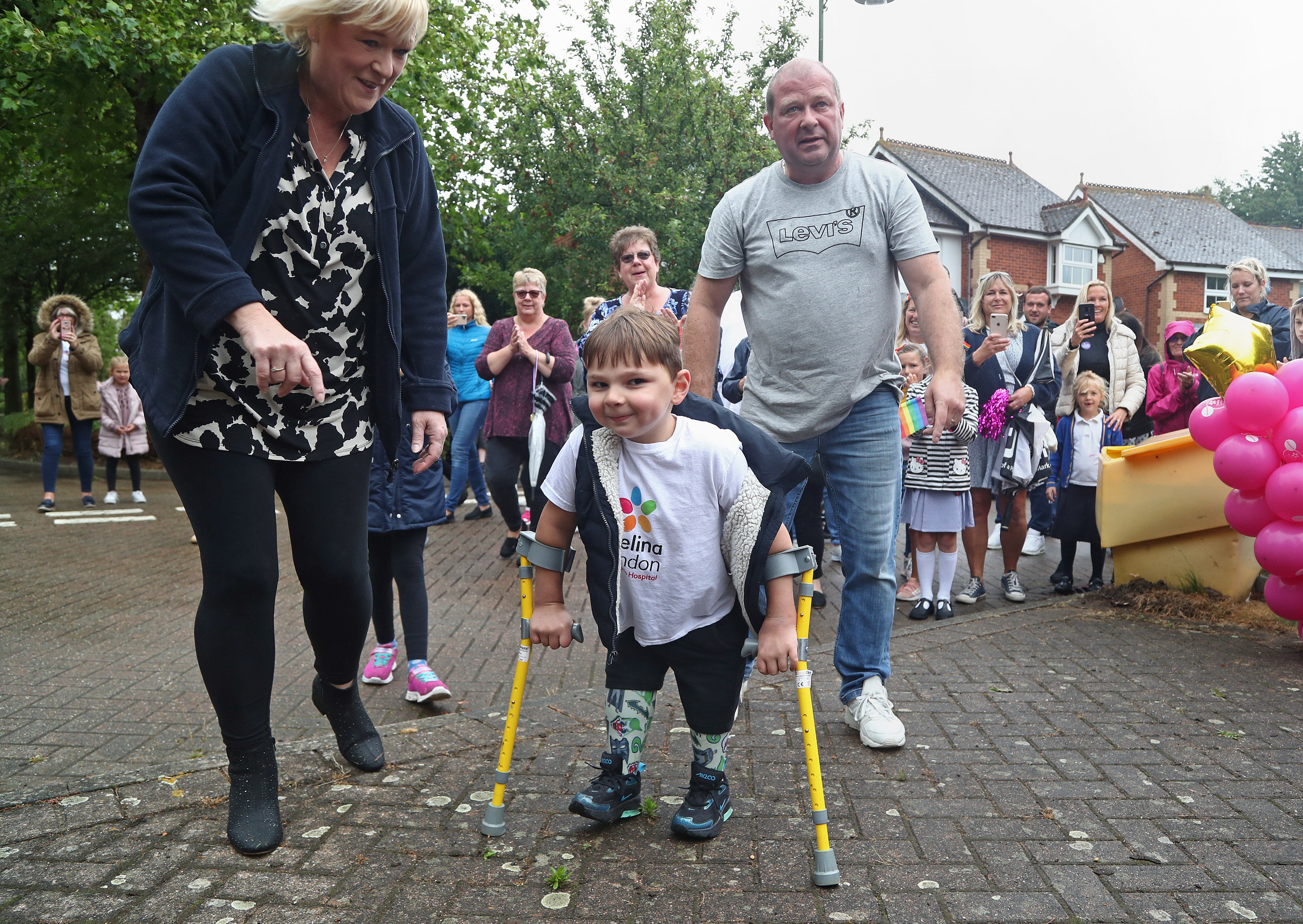Life sentences for child abusers are welcome – but the focus must be on early detection
We need to understand whether government agencies are able to use and share data systematically to search for patterns of behaviour that set off an alarm, writes Salma Shah


The government unveiled a new piece of legislation this week that deserved more attention. Tony’s Law will increase maximum sentencing for child abusers from 14 years to life. The change was prompted by the passionate campaigning of the adoptive family of seven-year-old Tony Hudgell who, as a baby, endured abuse so severe both his legs were amputated.
Who wouldn’t support this change? Especially when confronted with the horrors of how some people treat vulnerable, defenceless children. It is absolutely right to take a stand on behalf of those who cannot do so for themselves, never more so than in light of the case against the father and stepmother of Arthur Labinjo-Hughes. The government has acted swiftly and purposefully in this situation. Not traits always associated with those in power.
But this is not just about tougher sentencing, important as that is. Further government policy solutions will favour “prevention” but those types of policy interventions can take years to develop. Instead we need to get better at “detection”.
We are faced too often with stories of child abuse so repellent, the details are hard to shift from the memory. Each case has a different dynamic and variable details but there is a familiar pattern and conclusion: months of gut-wrenching torture, ending in death.
In 2000, we had details of the torture of eight-year-old Victoria Climbié; in 2007, the multiple serious injuries inflcited on two-year-old Baby P. All these horrors were perpetrated by those meant to protect and love the children. The harrowing reality of that abuse is seared on the brains of the many who read about it. It haunts us. If you have children or have ever had the privilege of caring for a child, those images never leave you, the anguish and pain turns very quickly to blood-boiling anger.
In all of these cases there has to be a holistic understanding of why these horrific crimes are undetected until it’s too late. How can it be that in a society as intrusive as ours, one that documents and analyses everything from income and life chances to medical and tax history, we can miss the brutality happening right under our noses?
Information sharing has certainly improved across services in recent years but we’re too far away from where government agencies need to be. We need to understand whether they are able to use and share data systematically to search for patterns of behaviour that set off an alarm; there has to be more investment in the systems that enable this.
The government’s “seven golden principles of data sharing” are positively medieval. We have the principle of safeguarding children in schools but can we find ways of reporting that can be logged and monitored by social services for quick action? Can we use better computer systems to help model the patterns that we know can be risky? These are fundamental questions.
To keep up to speed with all the latest opinions and comment sign up to our free weekly Voices newsletter by clicking here
There will of course be a cry for more resources to be spent on child protection but can we first be clear on what interventions are going to make the difference? Can we establish effectively what have been the barriers to detection in the past? Do we have social workers and health practitioners too scared to judge? Are people overworked and fighting on too many fronts?
If we don’t make an effort to enforce real systems change we will end up in the same cycle of anger and scapegoating that we have had for the last two decades, and we’ll have many more children being murdered in their homes.
Apparently, it takes a village to raise a child, so when you live in the suburbs or the inner city your village is quite often the services you depend on. It’s not about targets or professionalism, it’s about basic human compassion. We need to share our fears and we need to know the process exists to take them seriously.
Salma Shah was special adviser to Sajid Javid, from 2018 to 2019. She was also a special adviser at the Department for Digital, Culture, Media and Sport






Join our commenting forum
Join thought-provoking conversations, follow other Independent readers and see their replies
Comments